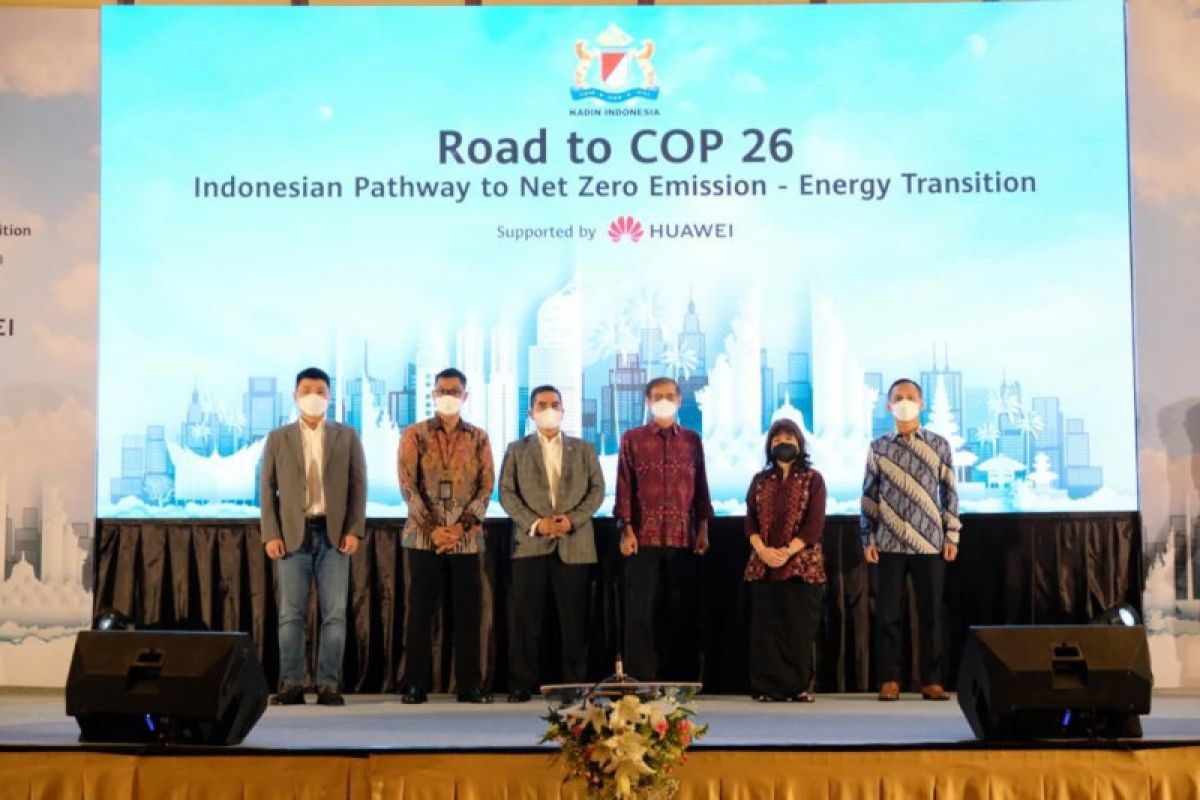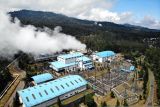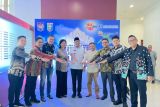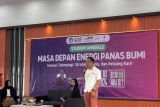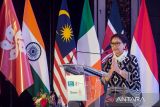J (ANTARA) - Energy transition will be a topic of discussion during the Sherpas’s meeting of the G20, which will be the first activity to be held during Indonesia’s G20 Presidency.
There will be 11 working groups and 1 initiative under the Sherpa Track, with the first Sherpas' meeting scheduled for December 7–8, 2021, Foreign Affairs Minister Retno Marsudi informed in Jakarta on November 26, 2021.
A green energy transition is crucial for many developing countries, including Indonesia, which has voiced its commitment to helping achieve the target of the Paris Agreement to reduce greenhouse gas emissions.
The country has pledged to meet its Nationally Determined Contributions (NDCs) in 2030 by cutting gas emissions by 29 percent under a business-as-usual scenario or 41 percent with international support.
In fact, Indonesia has created a roadmap for its energy transition to achieve the target of net-zero emissions by 2060, Energy and Mineral Resources Minister Arifin Tasrif said recently.
To achieve the target, it has outlined strategies that encompass an extensive development of new and renewable energy and gradual retirement of fossil fuel-fired power plants, in accordance with their age, he informed.
Moreover, the government will, in stages, make optimum use of pump storage, battery energy, storage system (BESS), and hydrogen fuel cells from 2031, he said.
It will also take into account an option for nuclear power plant development in 2045, with a plan to boost capacity by up to 35 gigawatts by 2060, he added.
In addition, it will increase network reliability by building intra- and inter-insular connections and developing smart grids and smart meters, he disclosed.
“We will also push for the use of electric vehicles, with the target of stopping the sales of conventional motorcycles by 2040 and conventional cars by 2050 and provide massive public transportation modes,” the minister said.
On November 20, 2021, President Joko Widodo (Jokowi) said that the energy transition from fossil energy to green energy can no longer be delayed.
He urged state oil and gas company PT Pertamina and state electricity company PT PLN to use their time as efficiently as possible to strengthen the foundation for the energy transition.
Coal has so far contributed the most to the country’s energy supply at 67 percent, followed by fossil fuel (15 percent) and gas (8 percent), he noted. The government is considering shifting to green energy by developing more geothermal, solar, hydro, and wind power plants, he said.
Indonesia has thousands of big and small rivers that have the potential to support the development of hydropower plants, though this will require large funds, he noted.
To support the global energy transition to new and renewable energy, there is a price that will need to be paid as energy prices will increase, according to Jokowi. The price gap is unlikely to be funded by the state or passed on to the public, he added.
He said he will convey the need for energy transition funding to G20 leaders at next year's G20 Summit in Bali.
In fact, energy transition is one of the pilot projects that will be presented by Indonesia while hosting the G20 Presidency, according to Coordinating Minister for Economic Affairs, Airlangga Hartarto.
"Energy transition becomes the pilot project or lighthouse. We must prepare a package on how to retire coal-fired power plants (PLTU)," Hartarto remarked on November 18, 2021.
Hartarto noted that for the early retirement of PLTUs, Indonesia requires premium funding that is currently being discussed with the Asian Development Bank (ADB).
"When PLTUs are retired and the funding comes in, it replaces the remaining Internal Rate of Return (IRR)," he explained, adding that energy is the main input for Indonesia's economic competitiveness.
Earlier, on November 3, 2021, the Asian Development Bank (ADB) and PT PLN signed a memorandum of understanding to support efforts to reach the clean energy target in Indonesia.
"We are proud to be able to collaborate with PLN to help Indonesia conduct important transition from carbon-based energy to clean energy," ADB's vice president, Ahmed M. Saeed, said.
The MoU was signed by PLN's president director, Zulkifli Zaini, and ADB's director-general for Southeast Asia, Ramesh Subramaniam, on the sidelines of the 26th UN Climate Change Conference of the Parties (COP26) in Glasgow, Scotland.
In addition, a Letter of Intent (LoI) on cooperation in accelerating the energy transition in Indonesia was signed by PLN chief Zulkifli Zaini , Basilio Dias Araujo of the Coordinating Ministry for Maritime Affairs, French Ambassador to Indonesia, Olivier Chambard, and country director of Agence Francaise de Development (AFD), Emmanuel Baudran, on November 24, 2021.
The LoI concerns the French government’s plan to disburse 520 million euros (equivalent to Rp8.3 trillion) to help accelerate the green energy transition program in Indonesia.
State-owned Enterprises Minister Erick Thohir lauded SOEs' cooperation with various stakeholders, including cooperation between PLN and ADB and PLN with AFD.
He deemed the cooperation as the first step toward a fair and affordable transition to support the carbon-neutral development path.
"The entire SOEs support Indonesia's transition to net-zero emission because this will be beneficial for the people and the environment," Thohir remarked.
Baca juga: Indonesian Govt stanch in commitment to sustainable utilization of clean energy
Baca juga: Renewable shares in energy mix targeted 13.4 percent in 2020


